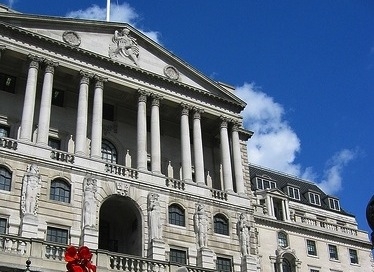The Bank of England’s Monetary Policy Committee (MPC) voted yesterday week to maintain its Bank Rate at 0.1%.
The MPC also voted unanimously for the Bank of England to continue its policy of Quantitative Easing (QE) to maintain liquidity in the economy,
It will maintain the stock of sterling non-financial investment-grade corporate bond purchases, financed by the issuance of central bank reserves, at £20 billion.
The Bank will also continue with the programme of £100 billion of UK government bond purchases, financed by the issuance of central bank reserves, and also to start a previously announced programme of £150 billion of UK government bond purchases, financed by the issuance of central bank reserves. This is expected to maintain the target for the stock of these government bond purchases at £875 billion and will push the total target stock of asset purchases at £895 billion.
Laith Khalaf, financial analyst, AJ Bell said markets were pricing in a one in four chance of a rate cut next year with a “disorderly Brexit” increasing the chances of this happening.
Some experts have forecast the possibility of negative interest rates next year. CPI inflation fell this week to 0.3%, one of the lowest rates on record and well below the Bank of England's 2% target.
He said: “The Bank of England won’t make its next move until it knows which way Brexit is heading. In the event of no-deal, it would likely be willing to look through the temporary jump in inflation as a result of weaker sterling and the imposition of tariffs, but it couldn’t turn a blind eye to the economic impact of a disorderly Brexit.
“The Bank’s governor has said no deal would have a greater long-term economic effect than the pandemic, so we can expect further stimulus should Brexit talks fail, either in the form of more QE, or interest rate cuts. On the latter, the Bank is already flirting with its effective lower boundary, and there has been a chorus of groans from high street banks about the prospect of negative rates.
“Of course, aside from Brexit there is the ongoing economic damage of the pandemic to consider and that in itself may prove worthy of further stimulus. Despite the boost in confidence provided by vaccines, markets are pricing in a one in four chance of a rate cut in 2021, which would leave rates at zero, or below.
“For savers, a further interest rate cut would mean little more than rearranging the deckchairs on the Titanic. Real returns on cash have been sunk by over a decade of ultra-loose monetary policy and a record £215 billion now sits in bank accounts paying zero rate of interest. One saving grace is that inflation is so low, but that won’t be the case for ever. When the oil price crash and temporary cut to VAT for hospitality businesses fall out of the annual comparison in spring, we can expect CPI to rise back towards the 2% target.”

